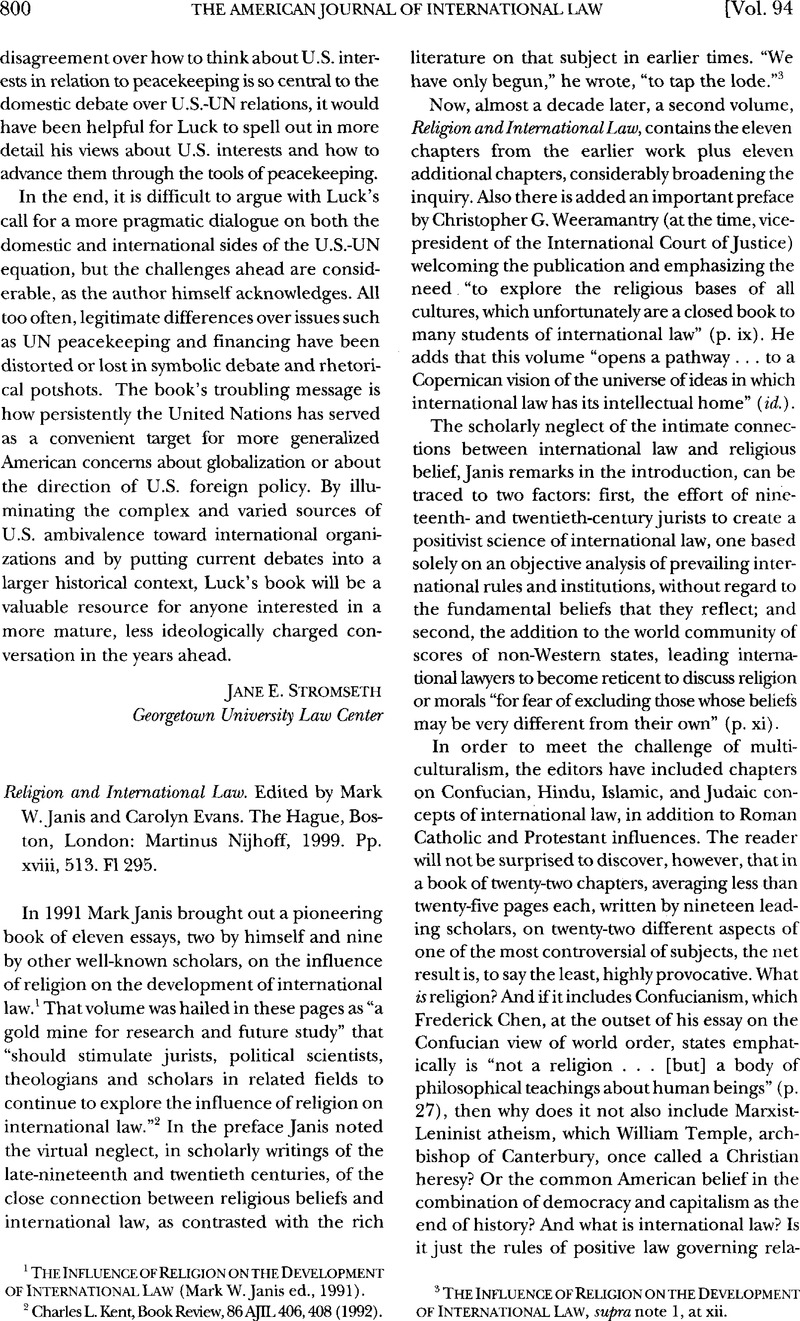No CrossRef data available.
Published online by Cambridge University Press: 27 February 2017

1 The Influence of Religion on the Development of International Law (Mark W. Janis ed., 1991).
2 Charles L., Kent, Book Review, 86 AJTL 406, 408 (1992)Google Scholar.
3 The Influence of Religion on the Development of International Law, supra note 1, at xii.
4 Only one of the chapters, that of William Park (“Spiritual Energy and Secular Power”), deals with the lex mercatoria, the body of transnational law governing commercial transactions—a true jus gentium in the classical sense.
5 See Muldoon, James, Popes, Lawyers, and Infidels: The Church and the Non-Christian World, 1250–1550, at 3–104 (1979)Google Scholar.
6 See Muldoon, James, The Contribution of the Medieval Canon Lawyers to the Formation of International Law, 28 Traditio 483 (1972)CrossRefGoogle Scholar.
7 In his discussion of Islamic international law, Gamal Badr gives the striking example of the elaborate 1292 treaty of friendship and military alliance between the sultan of Egypt and Syria, on one side, and the king of Aragon on his own behalf and on behalf of the rulers of Castile and Leon and of Portugal, on the other (pp. 96–97).
8 Parliament of the World’s Religions, Towards a Global Ethic (An Initial Declaration) (1993), <http://www.cpwr.org/calldocs/EthicTOC.html>.
9 Id. at 3 (emphasis omitted).